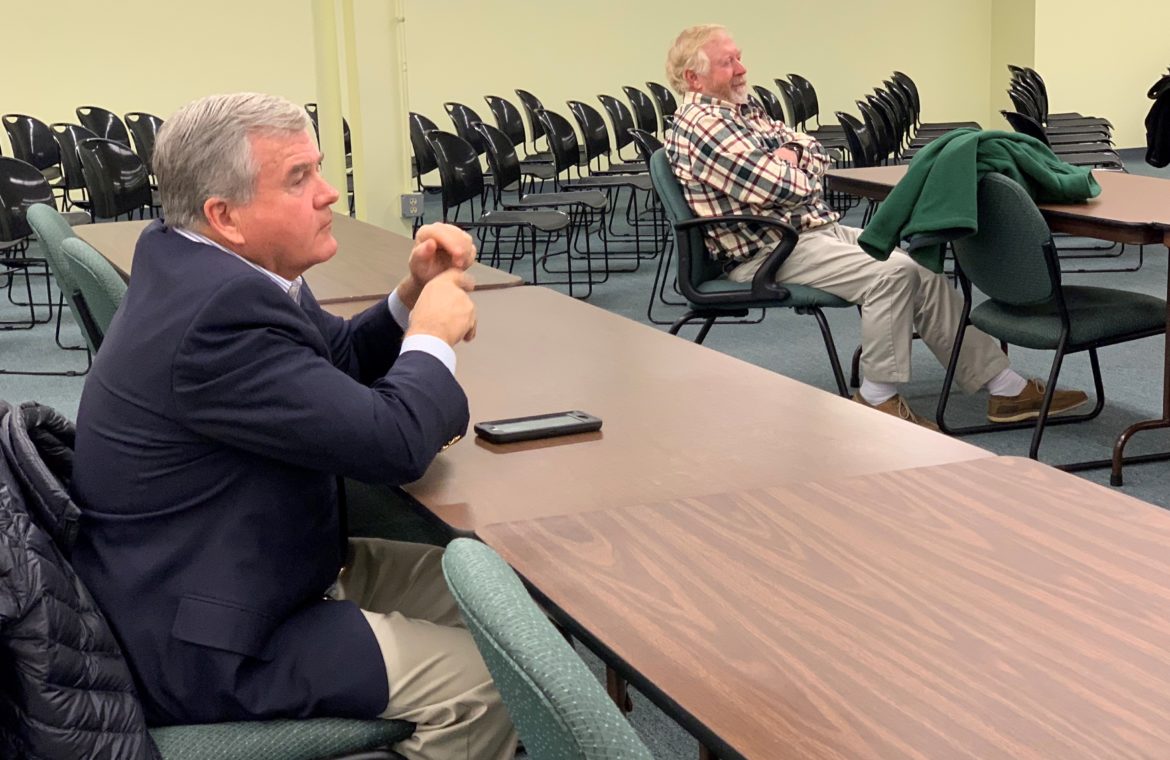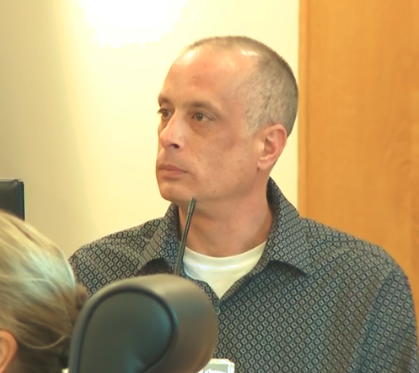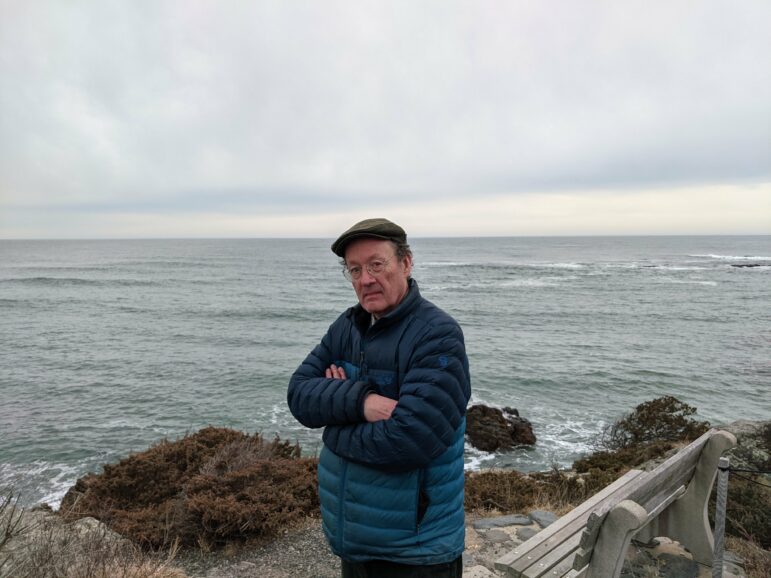By Nancy West, InDepthNH.org
CONCORD – The Site Evaluation Committee deliberated Friday on whether the Seacoast Reliability Project would have an unreasonable impact on orderly development of the region, the same criteria required for project approval that scuttled Northern Pass in February.
Who should pay for mediation if Eversource and a land or business owner can’t reach agreement took center stage early in the day as the committee deliberates whether Eversource can construct the $84 million, 13-mile, 115 kv high-voltage project from Madbury to Portsmouth.
Five members, including chairman Patricia Weathersby, agreed there should be some substantive cost borne by the land or business owner, with members Elizabeth Muzzey and David Shulock expressing concern that some people don’t have the financial resources to fight a large corporation.
Over their objections, the board adopted Weathersby’s suggestion that the cost of any mediation be split – 75 percent Eversource and 25 percent capped at $300 for the property or business owner.
“The cost is too high for the average property owner,” Shulock said. Muzzey agreed saying the committee would have no way of knowing the parties’ resources.
Susan Duprey, a public member on the committee, said there needs to be some interest in bringing the dispute resolution process to a conclusion. Michael Fitzgerald said there should be a way to discourage frivolous claims.
Charles Schmidt agreed to the $300 cap, which also won Christopher Way’s vote, saying without such a buy-in there would be no incentive to ever settle a dispute.
Northern Pass
It was deja vu of Northern Pass when Brad Thompson of Stewartstown stopped by the SEC’s Seacoast deliberations Friday. Thompson was an intervenor in the Northern Pass project and spent many of 70 adjudicative hearings in the same room at 49 Donovan St. in Concord fighting the $1.6 billion project proposed from Pittsburg to Deerfield.
The Site Evaluation Committee that decided that case included several different members. It denied Northern Pass on Day 3 of deliberations stating that Eversource hadn’t proven it wouldn’t interfere with the orderly development of the region.
The committee was widely criticized for not deciding all four criteria laid out in the law needed to grant a certificate to build before voting unanimously to deny Northern Pass.
Thompson said he stopped by because he was in the area. “It just became such a part of me, not that I miss it,” Thompson said during a break.
Eversource has appealed the SEC’s denial of Northern Pass to the state Supreme Court. And Thompson said he hasn’t ruled out the possibility that Northern Pass could be sent back to the Site Evaluation Committee.
Seacoast decisions
The committee has been methodically reaching consensus on all of the four criteria in great detail and is expected to finish deciding on orderly development on Monday. The committee will then consider the last of the four criteria, whether the project is in the public interest, which could lead to a vote on the entire project. Monday is the last day scheduled for deliberations.
The committee has already determined that Eversource has the financial, technical, and managerial expertise to build the project. And agreed that it will not have an unreasonable adverse effect on aesthetics, historic sites, air and water quality, the natural environment or health and safety.
On Friday, the committee decided the project wouldn’t have an unreasonable adverse impact on tourism.
Christopher Way credited the testimony of Robert Varney, president of Normandeau Associates, for helping to convince him there would be no unreasonable impact on tourism.
Way said he also relied on Varney’s qualifications as former commissioner of the Department of Environmental Services, and the fact that he attended the University of New Hampshire, in his decision making.
“I’m persuaded he does know the area,” Way said.
During a break, Durham Town Councilor Wayne Burton expressed concern that while relying heavily on Varney’s testimony and background, there was no mention during deliberations that Varney, who was listening in the audience most of Friday, was representing Normandeau Associates and was paid by Eversource for his conclusions.
The town of Durham had to hire an expert to prove that Normanderau’s original calculations about jet plowing under Little Bay were inaccurate, Burton said.
Orderly development
Duprey said Durham Town Administrator Todd Selig and Denis Hebert, chairman of the Newington Planning Board, both testified the project would interfere with the orderly development of the region, but she didn’t find them convincing.
“I couldn’t find any concrete examples of that occurring in anybody’s testimony,” Duprey said.
Weathersby said the project is inconsistent with the master plans of both Durham and Newington, which preclude overhead powerlines in some areas, but added the committee must take a broader view.
Denis Hebert, chairman of the Newington Planning Board said there is a solution the committee overlooked. Only 5,000 feet would have to be buried in Newington’s historic/residential district, he said.
“They are not willing to address that saying it constitutes a different project. It’s not a different project and they have the authority to do so,” Hebert said.
The committee made a mistake, he said. “There is a solution to get themselves out of the corner they’ve put themselves into. Put it underground as the master plan allows and the cost for doing so would be under $1 a year for an average electricity consumer,” Hebert said.
Fitzgerald said the Independent System Operator of New England (ISO-NE) has identified the Seacoast Reliability Project as the best solution to the area’s need for electricity.
Chairman Weathersby mentioned several times that the project is needed because of the rapid growth on the Seacoast, unlike a merchant project such as Northern Pass that was proposed as a profit-making venture.
As a reliability project, Eversource spokeswoman Kaitlyn Woods said the estimated $84 million cost of the project will be paid by all electric customers in New England, with New Hampshire’s share being about 9 percent.
The committee will deliberate again on Monday at 49 Donovan St. in Concord. The public is welcome.





